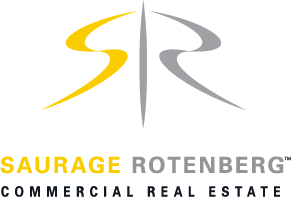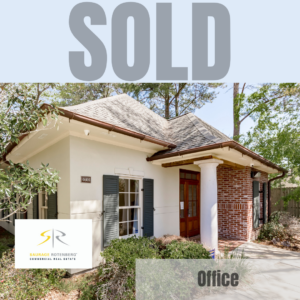Article submitted by Jack Herrington, Sales and Leasing Agent for Saurage Rotenberg Commercial Real Estate
Written by Tanner McGraw for CIRE Magazine | September/October 2016
Startups aren’t exactly synonymous with big money for commercial real estate brokers. New businesses are often looking for small spaces and short-term deals. However, brokers would be wise to give this market a second look, as today’s small businesses could be tomorrow’s next big thing, which could mean repeat business, referrals, and a chance to add a high-caliber brand name to your portfolio.
Brokers should take a long-term approach as they assess the potential value of a relationship with a startup. Does the business have growth potential? One small deal can lead to multiple contracts as the company grows.
Successful entrepreneurs often have a wide and active professional network. By impressing one startup leader, brokers can benefit from referrals.
The startup community in most cities is a close-knit group, and these leaders frequently wield greater local influence than their company size may suggest. Plus, if brokers establish themselves as startup specialists, they may gain a competitive edge in their market – a market where they are not only competing with each other, but with emerging technologies, such as leasing software programs, which could jeopardize their long-term role of the middle man. Brokers can add value to their startup clients by demonstrating that they understand their individual needs and challenges.
Distinctive Characteristics
Obviously, startups have budget constraints. While all clients want to secure the best deal possible, startups, in particular, need reasonably priced options, usually because of cash flow demands. Brokers should be prepared to work within a strict price range and to try to find options that provide flexibility.
Without years of financial and operating patterns to draw on, it can be difficult to make predictions about long-term space requirements. Plus, startups can be acquired, which is sometimes their aim from the start.
Business owners are often hesitant to sign multi-term leases and need flexible, affordable arrangements. That is part of the reason why the co-working, on-demand office concept, in which freelancers and small businesses rent flexible workspace options ranging from a single desk to space for a full team, has been so successful. According to the Global Coworking Survey, 10,000 new co-working spaces will open by the end of this year, and 62 percent of co-working owners want to expand.
On the other hand, a startup may surpass even its most optimistic predictions and need more space than expected – and fast. Last year, almost half of all office leasing activity was due to company expansions, according to Commercial Real Estate Lending Trends 2016, a report from National Association of Realtors.
To help startups stay nimble and scale quickly, brokers should look for buildings with built-in expansion plans, such as space that is subdivided among different small businesses. Or hunt for opportunities where these small businesses can have the right to first refusal on adjacent vacant space. Although it is possible an entrepreneur has already made his or her mind up about where to open shop, it could be worth discussing the merits of up-and-coming business hubs.
According to funding data from Mattermark, cities with the fastest-growing startup communities include Kansas City, Mo., Salt Lake City, and Seattle. These cities offer more affordable leasing options than New York City and San Francisco, as well as vibrant communities of like-minded business owners.
Recruiting Factors
Securing an attractive work environment that reflects its ethos is particularly critical to startups. These small businesses are competing with larger companies and other startups for top talent. Company culture helps give them a competitive edge in the so-called talent wars, so they need space that reflects their dynamic work environment.
Brokers should take time to understand a startup’s brand and core values. Most likely, they will be looking for open and collaborative environments, so brokers should think beyond the traditional office park.
Also, it may be important for the company to be headquartered near the city center and public transportation, as this is attractive to new recruits. Up-and-coming neighborhoods can prove attractive alternatives to more established (and pricier) areas, both because of their potential for cost-savings and their urban cachet. Commercial real estate professionals should consider the needs and interests of the type of workers the startup is trying to hire as they assess space options.
By establishing themselves as leaders in the startup segment, brokers can gain a competitive edge in their market, forge long-term relationships with growth potential, and gain access to a pipeline of new business. Because many professionals choose to focus on larger, more established companies, now is the time for brokers to familiarize themselves with the needs of these emerging players.
Jack Herrington joined Saurage Rotenberg Commercial Real Estate in October, 2016. He has extensive experience in the service industry, prior to beginning his career in real estate. Jack is currently pursuing his Certified Commercial Investment Member (CCIM) designation through the Commercial Investment Real Estate Institute.
Saurage Rotenberg Commercial Real Estate is a member of the Baton Rouge Area Chamber of Commerce (BRAC); the West Baton Rouge Chamber of Commerce; the Baton Rouge Better Business Bureau; the Louisiana Commercial Data Base (LACDB); and the International Council of Shopping Centers (ICSC). Several agents, on an individual basis, are members of the Society of Industrial and Office Realtors® (SIOR), the Certified Commercial Investment Member Institute (CCIM); the National Association of REALTORS® (NAR); and the Greater Baton Rouge Association of REALTORS® Commercial Investment Division (CID).




